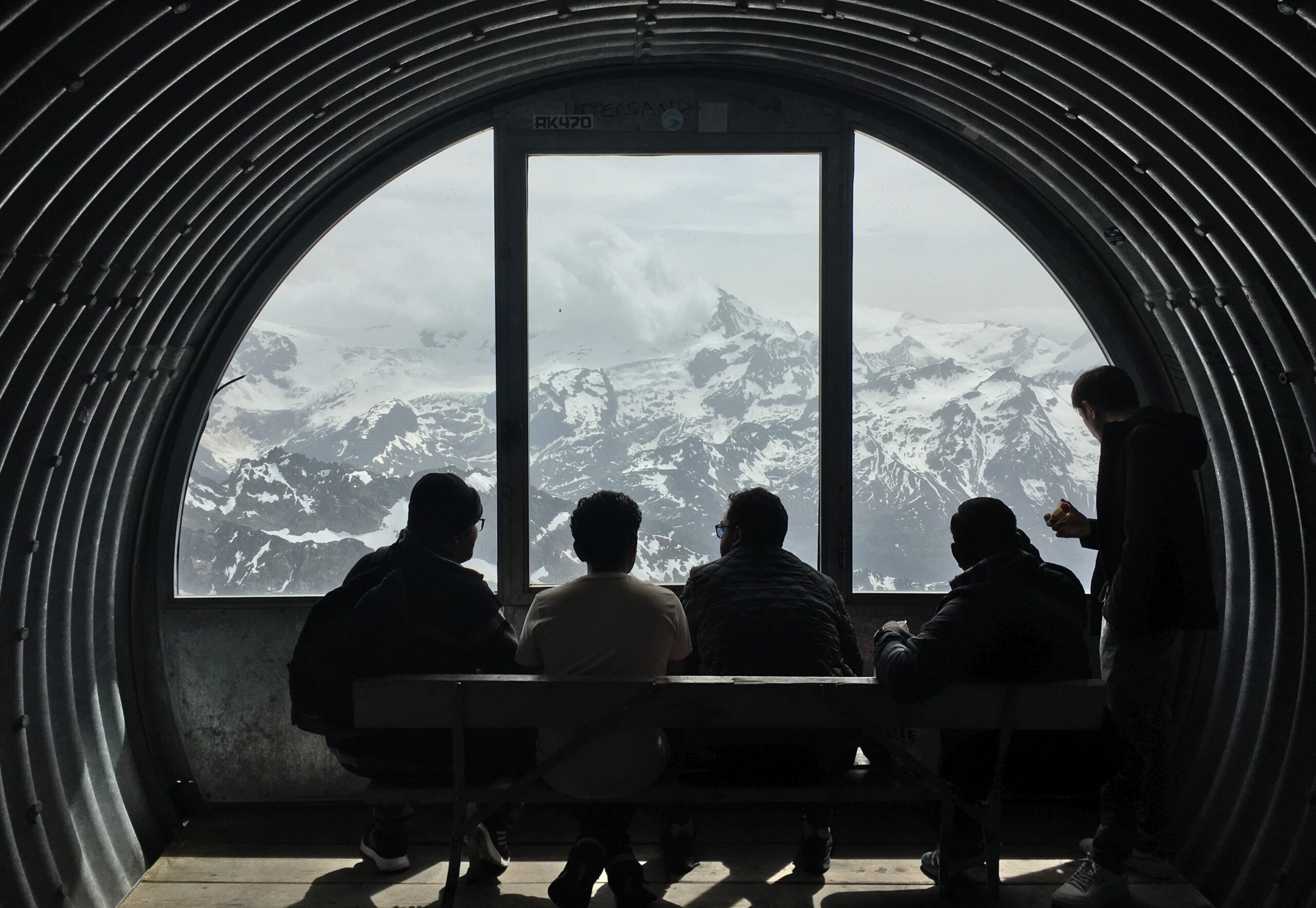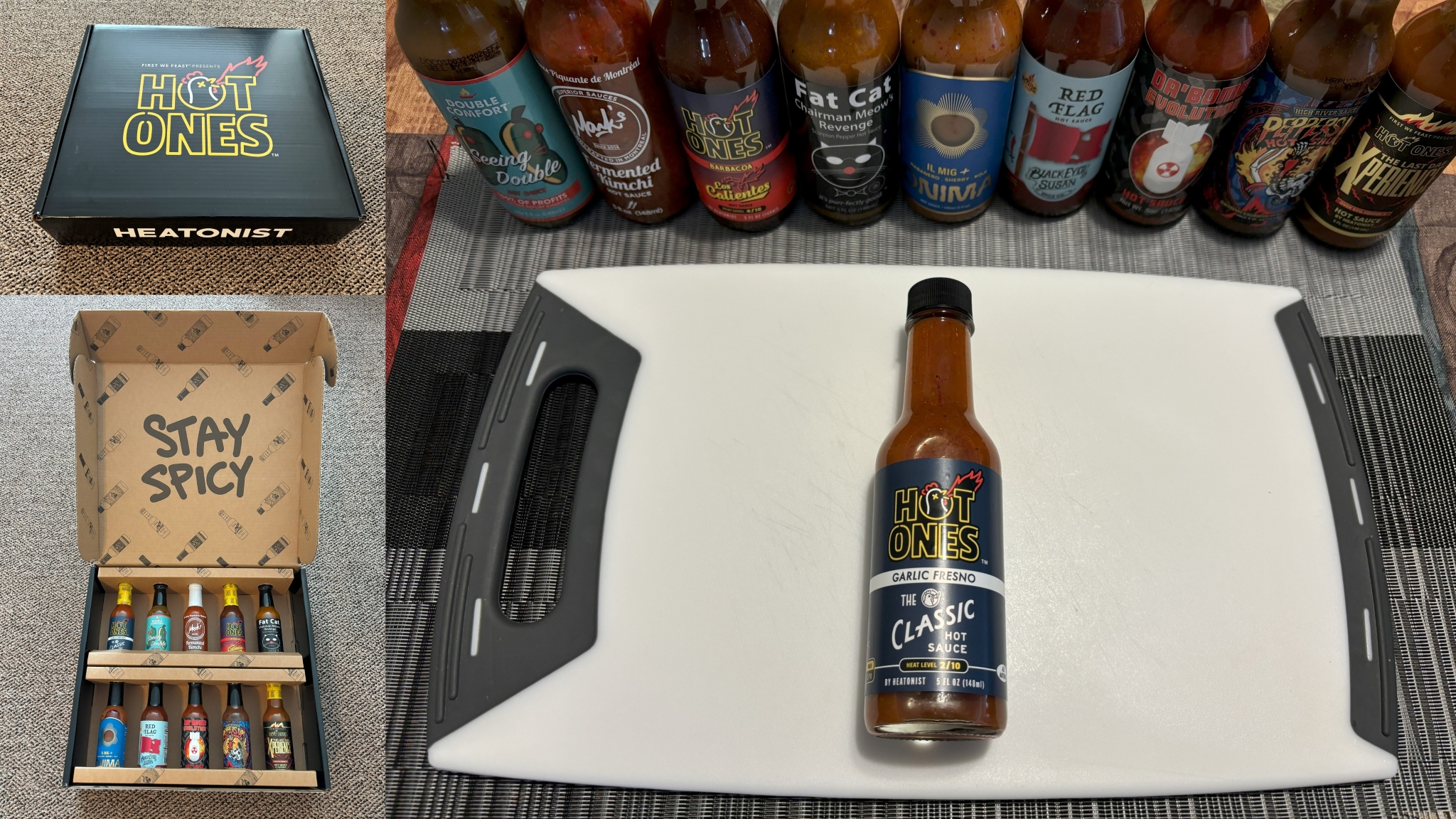-
World, Hold On
It began with a harmless conversation about the credulity we all carry. Our willingness to see past all kinds of falsities, fallacies, inconsistencies, and hokum. Our yearning to believe in something. An evolutionary entrapment that has led us equally to our darkest depths and highest heights.
A meal and some thoughts shared, and some inspiration found. An umbrella under which too many topics reside. Pseudosciences and pseudohistories of all kinds, bereft of credibility and yet magnetic to their adherents.
I chose cults as a worthy topic of exploration. Fictional ones, anyway. Perhaps an examination of some genre films to tease out greater truths surrounding collective tendencies powered by individual vulnerabilities.
The idea was written and the draft started. Then I noticed all the others in my directory. Satellites launched into orbit, as promising as they were unfinished. Gliding along – momentum assured. Undiminished but static.
Fulfilling ambition a constant struggle when the majority of your energy is demanded elsewhere.
Something to look forward to.
Imagination reaching escape velocity. Outpacing the pen, as expected.
-
Streaks Blue and Red
Today was the warmest day in Prince George this year. So far.
The temperature outside hit 35 C. Even though the inside of my apartment was slightly cooler, it only took a few minutes on the exercise bike before the sweat began pouring. For some reason this brought back a memory of walking through the Academy Museum in Los Angeles earlier this year. Specifically, an exhibit on Spike Lee’s 1989 treatise on race relations, Do the Right Thing.
The exhibit had several engaging behind-the-scenes videos playing in which the filmmakers spoke about their craft and process. The one that stuck out to me was an interview with Ernest Dickerson, the film’s cinematographer. He shared the different methods that his team used to imbue the film’s scenes with heat. Bright, warm color schemes in the architecture; butane-lit fuses just below the camera as it rolled to create a hazy layer that sat between the lens and subject, mirroring humidity; actors sprayed with water before each scene; all in service of a narrative filled with beguiling tension.
It was generally warm while they shot the film, but they wanted to up the pathetic fallacy. The buildings needed to bleed; the people’s inner emotions needed a worthy reflection in unforgiving asphalt.
-
Weekly Picks – July 7, 2024
 Credit (left to right): The Open Syllabus Galaxy; Brian Gratwicke / Flickr; Jose Miguel Picon Chimelis; Isai Ramos / Unsplash.
Credit (left to right): The Open Syllabus Galaxy; Brian Gratwicke / Flickr; Jose Miguel Picon Chimelis; Isai Ramos / Unsplash.This week’s collection:
- Galaxy Brain
- Learning to love monsters
- One fish, two fish, 3,000 fish…
- Infiltrating the Family
- Dragon-shaped aurora and ‘scream of a dying star’ revealed as 2024 Astronomy Photographer of the Year finalists
Introductory excerpts quoted below. For full text (and context) or video, please view the original piece.
-
Embers of Empire

Allow us royal subjects, commonwealth citizens governed by neocolonial pressures, we who have lived through dying embers of empire and observed the revolving door of mediocrity in British politics over the last decade or so, our quiet judgments and tempered schadenfreude. With the approval of an ailing monarch, the Conservatives will finally find their way out of power in the next few days. Their replacements will wonder where to start; this election is not exactly a mandate-providing affirmation, rather a denouncement of what came before. The public did not chase an inspiring vision; they voted for the hope of basic competence. The unfortunate truth – a bittersweet relish – that we from afar can savor in a twisted way, is that there will be brevity in this grand feeling of change. A new team dominating the game does not necessarily change the sport being played.
– / – / –
A kingdom voted. Kingdoms tend not to hold too many consequential votes. Democracy is not a requirement under divinely blessed royalty. But this kingdom is United, you see. A constitutional monarchy, they say. It delegates freedom under colonial architecture; a parliament hardly parochial. Its subjects are free to exercise their voice – an inside voice, mind you. Nothing loud enough to disturb the foundations of those lovely palaces and their inhabitants, or a growing body of unelected nobility who specialize in slowing down legislation already outpaced by the most sluggish of snails.
This is not the land of brave trial-and-error politics, but one of rehashing failed ideas given cosmetic treatments. A country that has offered largely static views on economic and foreign policy for over four decades. In a time when large blocs of nations grappled with the right combinations of Keynesian, Marxist, or Monetarist ideas, the UK tried austerity… and nothing else. A reminder that the last Labour governments championed the Iraq war and continued the Tory project of privatizing health services to undermine the NHS. I wonder how long it has been since a party in power was actually sympathetic, in action, to the marginalized or the working class. And how much sympathy they elicited from the House of Lords or head of state.
But this may be a reflection of the populace. At least, the politically active, participatory factions. This foreigner and brief interloper observed a small ‘c’ conservative political landscape. People of all ages within the conglomerate territory appear risk-averse in their volitions. Whether it was through apathy, complacency, or fear of novel approaches. Even in Edinburgh – filled with youth and committed to a more liberal republican future – one could not escape the feeling that there were certain red lines that could not be crossed. Jeremy Corbyn’s name was all it took to send people into fits of anger, no attention paid to the myriads of scandals that followed those actually in power. The press system, dominated by tabloids, periodicals, and punditry apple-skin-shallow, reduced everything to soundbites and everyone to caricatures. Complex narratives were impossible to find in the mainstream.
-
Weekly Picks – June 30, 2024
 Credit (left): Alphavector/ Shutterstock. Credit (center, clockwise from bottom left): Bruno Barbey/ Magnum Photos; Ahmad Al-Rubaye/ Getty Images; Wired staff/ Getty Images. Credit (right): James O’Brien for Quanta Magazine.
Credit (left): Alphavector/ Shutterstock. Credit (center, clockwise from bottom left): Bruno Barbey/ Magnum Photos; Ahmad Al-Rubaye/ Getty Images; Wired staff/ Getty Images. Credit (right): James O’Brien for Quanta Magazine.This week’s collection:
- Exit 238
- Agreeing to Our Harm
- Why the ‘Costs of Doing Business’ Are Costing Us Our Lives
- Computation Is All Around Us, and You Can See It if You Try
- The Power of Physician Empathy
- Rule by Militia
- The psychology of oppression and liberation
- Pooping on the Moon Is a Messy Business
Introductory excerpts quoted below. For full text (and context) or video, please view the original piece.
Linked here but not quoted below, some ‘fact sheets’ shared in the past week:
-
Weekly Picks – June 23, 2024
 Credit (left to right): Agnes Jonas; E+ via Getty Images; Film4 / Access / Polish Film Institute / JW Films / Extreme Emotions / The New Inquiry.
Credit (left to right): Agnes Jonas; E+ via Getty Images; Film4 / Access / Polish Film Institute / JW Films / Extreme Emotions / The New Inquiry.This week’s collection:
- Climate, State, and Utopia*
- When Police Shootings Don’t Kill: The Data That Gets Left Behind
- The Sentimentality of Evil
- The Beekeeper in Kathmandu
- The Evolution of Empire
- Ghosts on the Water
*The new forum published this week in Boston Review. Responses can also be found at the link.
Introductory excerpts quoted below. For full text (and context) or video, please view the original piece.
-
At the Confluence of Dreams

I wonder what goes through my friends’ minds when I reach out to them and ask if they are free to hop continents. Their pal from afar, politely inquiring if they have vacation days to donate to a spontaneous adventure. No less to a nation they had not given a moment’s thought until the text arrived.
Curiously, they say yes. It has happened three times during my working life. Canadian winters escaped by trotting to New Zealand, embalmed in festive cheer and soaring heat. A summer outing on trains across Hungary, Austria, and Switzerland, from burning pavements to the breezy Alps, from walking through air-conditioned museums to rolling around in a Soviet era jeep. And now we look forward to Fall hikes into the wild nowheres that dominate the Chilean terrain. To time budgeted for its companion islands, arid deserts, and stormy South.
Good friends. Few in number and anywhere from hundreds to several thousand kilometers apart, but easy to restart conversations with, sometimes years after they dropped off.
I have discussed the pull of the foreign before. It is a gravity unequally distributed amongst the group and we are the better for it. We each chase a different spark as we prepare ourselves for the journey.
The flickers of magic in new locations that one dwells on in anticipation of novel experiences. They always seem to appear when least expected, in different spots than predicted, and are sometimes not fully understood until months or years afterwards. I remember thinking that the epic scenery of Canterbury would uniquely elicit that sought feeling of awe – that within the first week on the land of the long white cloud I would capture the magic, if briefly, of travel beyond regular horizons. The region was spectacular, yet it was pleasantly the start of stumbling through a larger fantasy filled with similar highlights. I felt myself reflecting many months later on how there is a spell over that entire corner of the world. Its distinctive wildlife, volcanic landscapes, and tussle with existence in the liminal. Oceans away, a land where caves hold glow worms and hobbits alike.
-
Weekly Picks – June 16, 2024
 Credit (left to right, top to bottom): Frederic J. Brown/ AFP via Getty Images; Dan Kitwood/ Getty Images; Pete Niesen / Shutterstock; March Avery, Evening Reading, 1972/ ©2024 Artists Rights Society (ARS), photo by Josh Schaedel; Carlos Jasso/Reuters
Credit (left to right, top to bottom): Frederic J. Brown/ AFP via Getty Images; Dan Kitwood/ Getty Images; Pete Niesen / Shutterstock; March Avery, Evening Reading, 1972/ ©2024 Artists Rights Society (ARS), photo by Josh Schaedel; Carlos Jasso/ReutersThis week’s collection:
- Neymar: Bolivia’s Ladder Boy
- Inside Mexico’s anti-avocado militias
- Should I Have Kids?
- The Internet Supercharged the Exploitation of Black Culture
- The Great Video Game Swindle
- The prison system isn’t ‘broken’ – it’s designed to traumatize black people en masse
- The Oldest Ecosystems on Earth
Introductory excerpts quoted below. For full text (and context) or video, please view the original piece.
-
Earth-Sized Company Towns
For a program that has created so many original, prescient musical numbers, South Park’s most blunt commentaries on common complacencies are sometimes found in straightforward reflections scored with throwback tracks. The decades-old song usually functioning as two reminders in one – of the cyclical lessons we face and their almost routine repurposing behind different masks.
Some people say a man is made outta mud
A poor man’s made outta muscle and blood
Muscle and blood and skin and bones
A mind that’s a-weak and a back that’s strongThis version of 1946’s “Sixteen Tons” (itself referring to a coal mining practice in the 1920s) was sung in 1955 by Tennessee Ernie Ford. It relays, as effectively in 2024 as back then, the forceful allying to an exploitative entity. Except today, the company towns are earth-sized; the swelling digital monopolies that tie themselves to our collective political economies at immeasurably large scales. The Titanics that carry with them the fate of markets, elections, freethought, and our environment.
You load 16 tons, what do you get?
Another day older and deeper in debt
St. Peter, don’t you call me ’cause I can’t go
I owe my soul to the company storeIt is a strangely vanilla, yet efficient, montage in an episode with quite a few absurd zeniths. (Not every day does a man in a box end up the leader of a union drive.) No mystery why it came to mind as I went out to grab some takeout today. The two individuals ahead of me were on their phones, each awaiting a number of orders to be placed within a large, thermally insulated bag, each with a different food delivery app’s logo stamped across it.
I was born one mornin’ when the sun didn’t shine
I picked up my shovel and I walked to the mine
I loaded 16 tons of number nine coal
And the straw boss said, “Well, a-bless my soul”The laboriousness of labor may change, but its structure remains consistent. And we have done not-too-well to find ourselves in similar places in relation to the power brokers of society, nearly a century apart.
-
Running the Gauntlet

This post does not go much deeper than ‘I tried several spicy sauces for the novelty’.
After watching multiple episodes of the Youtube show, and knowing I would quickly consume any hot sauce in the kitchen, I decided to order the latest collection and test them out for myself. Results shared below.
The Context
I regularly consume very spicy food.
- Jalapenos, red chilis, and various store-bought hot peppers and sauces (including the stronger ones sourced from Asian markets) are a staple of my diet.
- I like spicy Asian cuisine – I have consumed the hottest achars, numbing spices, and hotpot mixes without too much issue. The phlegm may get going but I enjoy eating the dishes.
- For those who are familiar with Noodlebox – I like ordering a 4 or 5 on their spice menu. The 6 is usually too much for me to really enjoy the flavors. A bit of googling tells me their 6 is around 1,000,000 on the Scoville scale, which itself is a flawed metric.
I do not know how accurate all the spiciness measures are; no better way to confirm the heat than by trying it for myself!